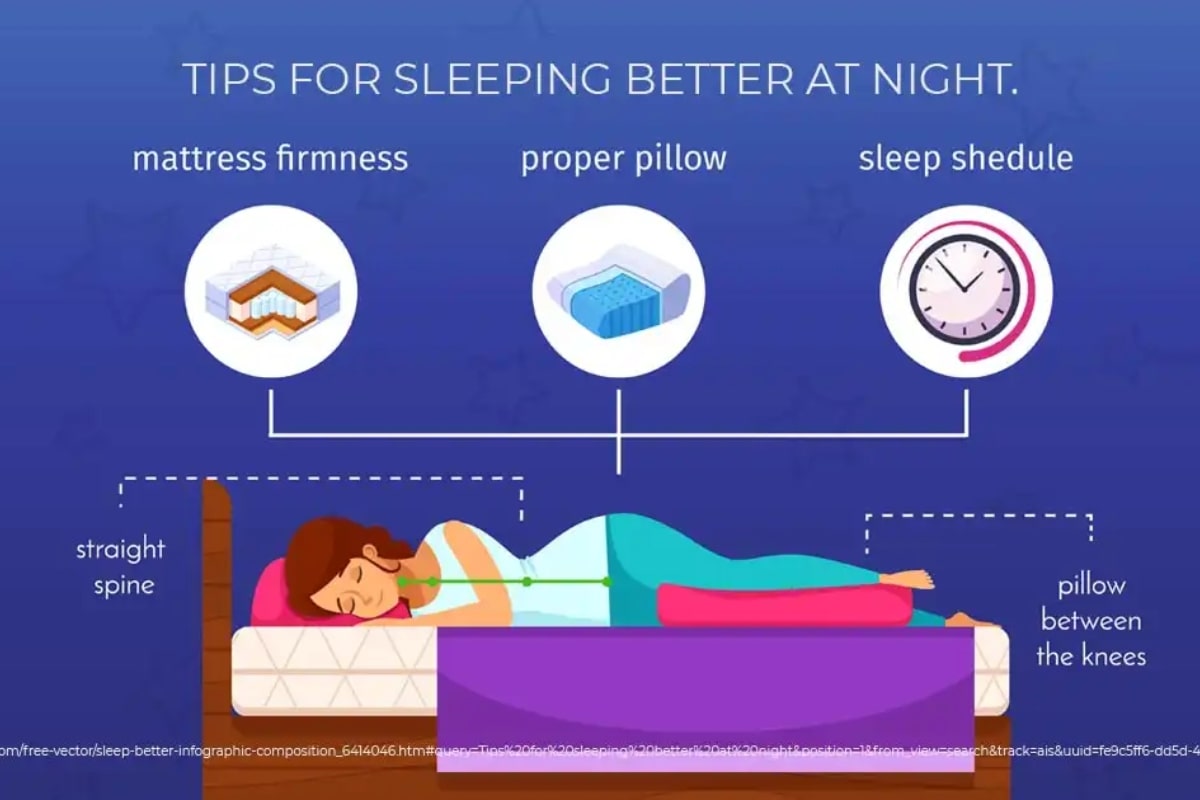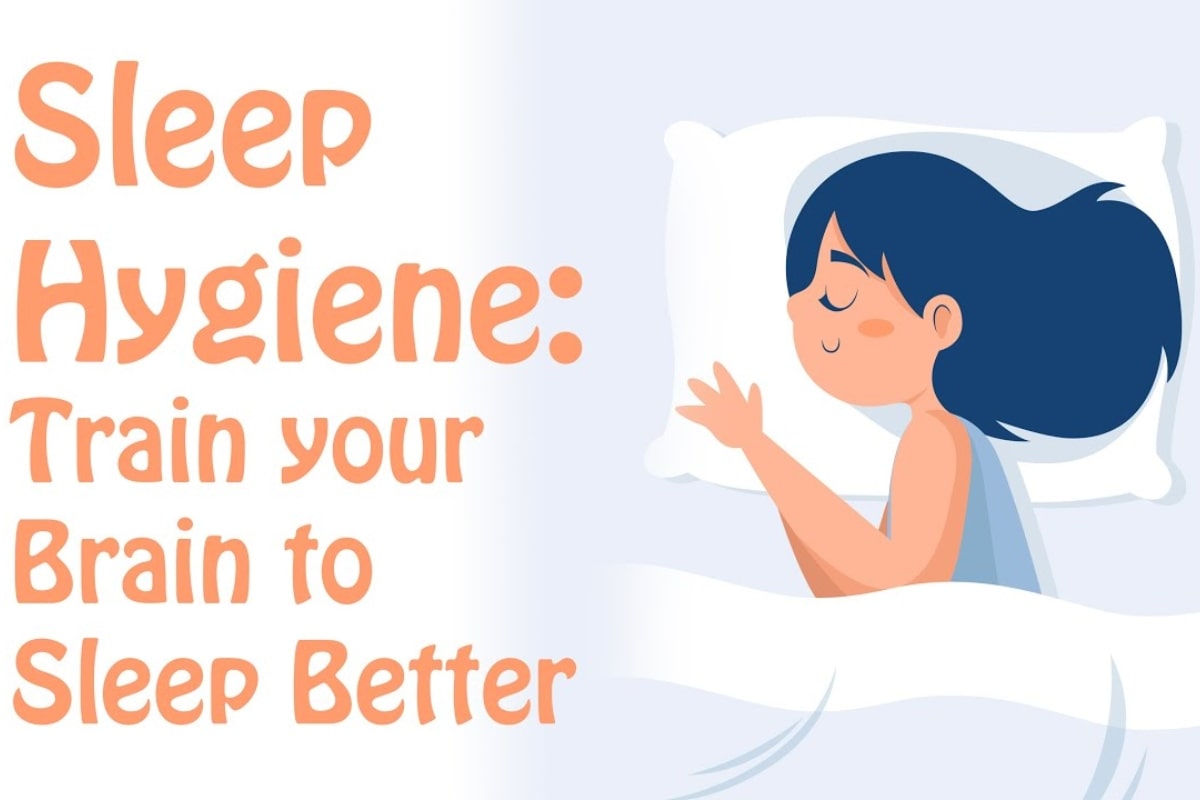Hey there, fellow sleep enthusiasts! I’m Sarah, your go-to gal for all things related to catching those elusive Z’s. As a working mom of two and a recovering insomniac, I’ve been on quite the journey to discover the secrets of a good night’s sleep. Today, I’m thrilled to share with you my comprehensive guide to sleep hygiene. So, grab your favorite cozy blanket, and let’s dive into the world of better sleep!
Why Sleep Hygiene Matters
Before we jump into the nitty-gritty of sleep hygiene tips, let’s talk about why it’s so crucial. Sleep isn’t just a luxury; it’s a fundamental pillar of our health and well-being. Think of it as the reset button for your body and mind. When we skimp on sleep, we’re essentially running on low battery all day long.
Good sleep hygiene can:
- Boost your immune system
- Improve your mood and emotional regulation
- Enhance cognitive function and memory
- Help maintain a healthy weight
- Reduce the risk of chronic diseases
- Increase productivity and creativity
Now that we’ve established why sleep is the MVP of our daily routine, let’s dive into some game-changing sleep hygiene tips that’ll have you snoozing like a pro in no time!
1. Stick to a Sleep Schedule (Even on Weekends)
Consistency is key when it comes to sleep hygiene. Our bodies thrive on routine, and this is especially true for our sleep-wake cycle. Try to go to bed and wake up at the same time every day, even on weekends. This helps regulate your body’s internal clock, making it easier to fall asleep and wake up naturally.
I know the temptation to sleep in on weekends is real. But trust me, maintaining a consistent schedule will do wonders for your overall sleep quality. If you must adjust your schedule, try to keep the difference within an hour of your usual bedtime and wake-up time.
Pro tip: If you’re a chronic snooze-button hitter (guilty as charged!), try placing your alarm clock or phone across the room. This forces you to get out of bed to turn it off, making it less likely you’ll crawl back under the covers.
2. Create a Relaxing Bedtime Routine
Remember how we used to have bedtime routines as kids? Well, it turns out our adult selves need them too! A consistent, relaxing bedtime routine signals to your body that it’s time to wind down. Here’s what my ideal bedtime routine looks like:
- Take a warm bath or shower (about 90 minutes before bed)
- Do some light stretching or gentle yoga
- Read a few pages of a book (nothing too exciting, though!)
- Practice deep breathing or meditation
- Listen to calming music or nature sounds
The key is to find activities that help you relax and transition from the busyness of the day to a state of calm. Experiment with different routines until you find what works best for you. Remember, consistency is crucial, so try to stick to your chosen routine as much as possible.
3. Transform Your Bedroom into a Sleep Sanctuary
Your bedroom should be your personal sleep oasis. Creating the right environment can make a world of difference in the quality of your sleep. Here are some tips to create the ultimate sleep-friendly bedroom:
- Temperature: Keep it cool. The ideal sleeping temperature is between 60-67°F (15-19°C).
- Darkness: Embrace the darkness. Invest in blackout curtains or an eye mask to block out light.
- Noise control: Silence is golden. Use earplugs or a white noise machine to drown out disruptive sounds.
- Comfortable bedding: Splurge on high-quality pillows, sheets, and mattresses.
- Declutter: A tidy room can lead to a tidy mind. Keep your bedroom clean and organized.
- Reserve your bed for sleep and intimacy: Avoid working, eating, or watching TV in bed.
4. Mind What You Eat and Drink
What you consume throughout the day can have a big impact on your sleep quality. Here are some dietary dos and don’ts:
Do:
- Stay hydrated throughout the day
- Eat a balanced diet rich in sleep-promoting nutrients like magnesium, tryptophan, and melatonin
- Have a light snack before bed if you’re hungry
Don’t:
- Consume caffeine late in the day
- Eat heavy, spicy, or fatty meals close to bedtime
- Drink alcohol before bed
Remember, everyone’s body reacts differently to foods and drinks. Pay attention to how what you consume affects your sleep and adjust accordingly.
5. Get Moving During the Day
Regular exercise is a sleep hygiene superstar! Aim for at least 30 minutes of moderate exercise most days of the week. Just be sure to finish your workout at least 3 hours before bedtime.
Sleep-friendly exercises to try:
- Yoga
- Pilates
- Brisk walking
- Swimming
- Cycling
6. Manage Stress and Anxiety
Nothing ruins a good night’s sleep quite like a racing mind. If stress and anxietyf are keeping you up at night, try these techniques:
- Journaling: Write down your worries and to-do list before bed.
- Practice gratitude: Focus on the positive aspects of your day.
- Progressive muscle relaxation: Tense and relax each muscle group in your body.
- Mindfulness meditation: Focus on your breath and the present moment.
- Cognitive Behavioral Therapy for Insomnia (CBT-I): Consider seeking help from a therapist trained in CBT-I.
7. Limit Screen Time Before Bed
I know it’s tempting to scroll through social media or binge-watch your favorite show before bed, but the blue light emitted by electronic devices can seriously mess with your sleep. Try to avoid screens for at least an hour before bedtime.
Alternative pre-bed activities:
- Read a physical book
- Listen to a podcast or audiobook
- Do a puzzle or coloring book
- Practice a hobby like knitting or drawing
8. Be Mindful of Naps
While a quick power nap can be refreshing, long or late-day naps can interfere with your nighttime sleep. If you must nap, keep it short (20-30 minutes) and early in the day.
9. Get Some Sunshine
Natural light exposure during the day helps regulate your circadian rhythm. Try to get outside for at least 30 minutes each day, preferably in the morning.
10. Consider Natural Sleep Aids
If you’re still struggling to fall asleep after implementing the above tips, some natural remedies might help:
- Chamomile tea: Known for its calming properties.
- Lavender: Try a few drops of lavender essential oil on your pillow.
- Magnesium: This mineral can help relax muscles.
- Melatonin: Consult with your healthcare provider before starting any new supplement.
11. Create a Pre-Sleep Wind-Down Period
Consider implementing a longer wind-down period in the evening to help transition from the stresses of the day to a more relaxed state conducive to sleep.
12. Optimize Your Sleep Environment
Beyond the basics of a cool, dark, and quiet room, consider these additional factors:
- Air quality: Ensure your bedroom is well-ventilated.
- Plants: Some indoor plants can promote relaxation.
- Essential oils: Use a diffuser with calming scents.
13. Address Underlying Health Issues
Sometimes, sleep problems can be a sign of underlying health conditions. If you’ve been consistently struggling with sleep, it might be time to consult a healthcare professional.
14. Practice Sleep Restriction Therapy
This involves temporarily reducing the time you spend in bed to match the amount of sleep you’re actually getting.
15. Use Cognitive Restructuring
Identify and challenge unhelpful thoughts about sleep to improve your sleep quality.
Conclusion: Your Journey to Better Sleep
Improving your sleep hygiene is a journey, not a destination. It might take some time to find the combination of strategies that works best for you. Remember, good sleep is not a luxury; it’s a fundamental pillar of health and well-being.
Sweet dreams, and may your sleep be as refreshing as a gentle summer breeze (without the allergies, of course)!
P.S. Don’t forget to share your favorite sleep hygiene tips in the comments below! Let’s create a community of well-rested, energized individuals ready to take on the world – one good night’s sleep at a time!



